Health Benefits of Swiss Chard |
 Swiss Chard health benefits includes treating anemia naturally, contains strong antioxidant properties, promotes bone development, prevent cardiovascular disease, promotes digestion, boost cognitive development, maintain healthy hair, skin, and nails, improves muscle function, prevent macular degeneration, support eye health, helps manage and prevent diabetes, and help prevent cancer. What is Swiss Chard?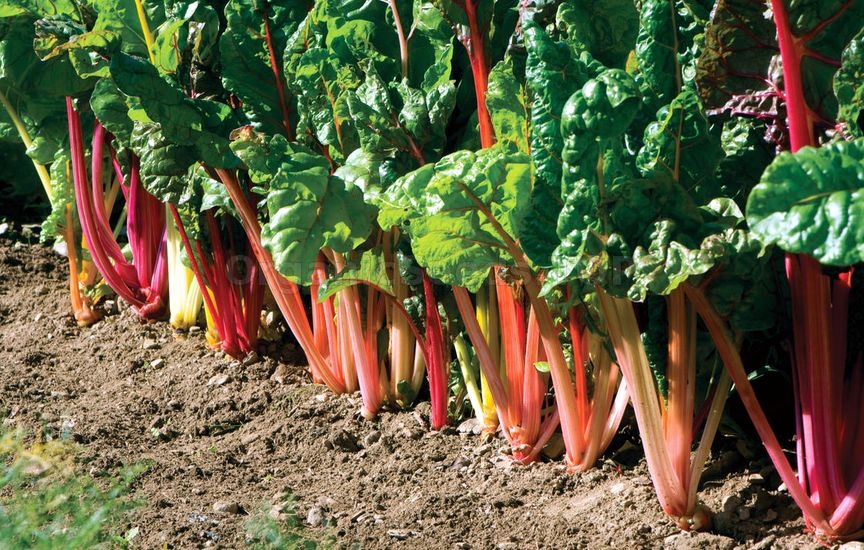 Swiss chard is a green leafy vegetable that is classified as Beta vulgaris subsp. Cicia, which belongs to the Chenopodiaceae family. Swiss chard, crab beet, mangold, perpetual spinach, silver beet, and spinach beet are all monikers referring to the chard vegetable. The origin of the adjective “Swiss” remains a moot point, since the plant did not originate in Switzerland.
Swiss chard has been used in culinary applications for centuries. Fresh, tender chards can be eaten raw in salads, while mature leaves and hard stalks are cooked or sautéed. Chard features deeply colored green leaves, multicolored stalks and veins that range from reds, purples, and yellows. Moreover, nutritionists revere Swiss chard for its survivability and nutrient profile. Swiss chard can be cultivated in various types of soils and require minimal light and water. Likewise, it contains a range of antioxidants such as beta-carotene, lutein, and zeaxanthin, which are all vital for promoting eye health. In addition, Swiss chard contains flavonoids and betalains that make up its anti-inflammatory properties. 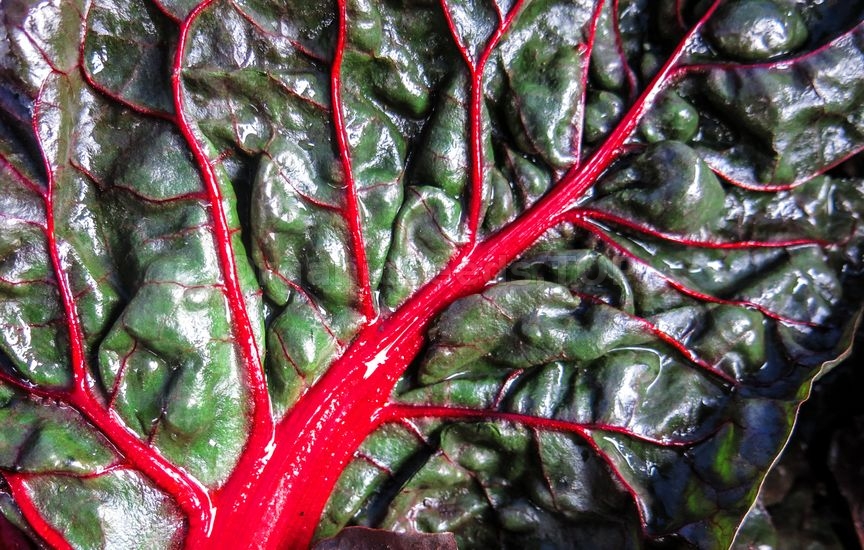 Nutrition Info (per 100 g):
11 Amazing Health Benefits of Swiss Chard1. Strong Anti-Oxidant Properties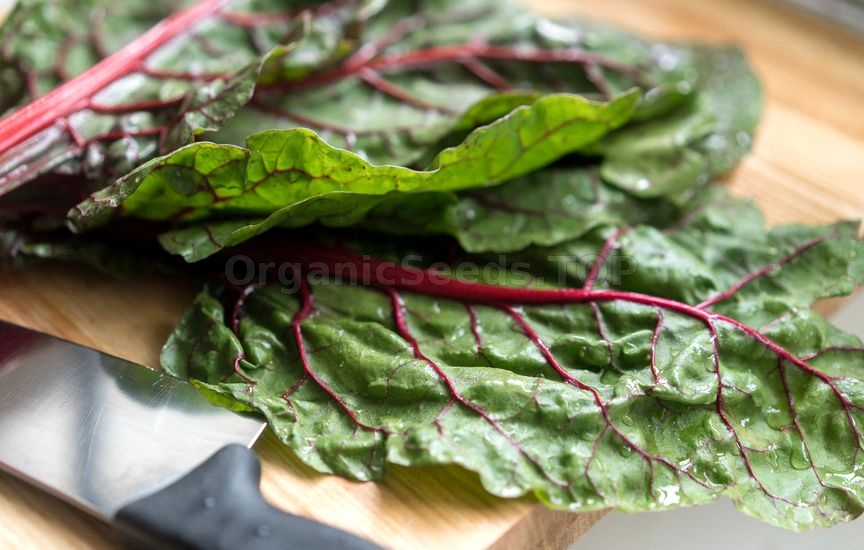 Swiss chard is high in antioxidants that fight free radicals within the body and decelerates the aging process. In fact, Swiss chard has 13 types of polyphenol antioxidants, 19 types of betaxanthin antioxidants, and 9 types of betacyanins.
2. Treats Anemia Naturally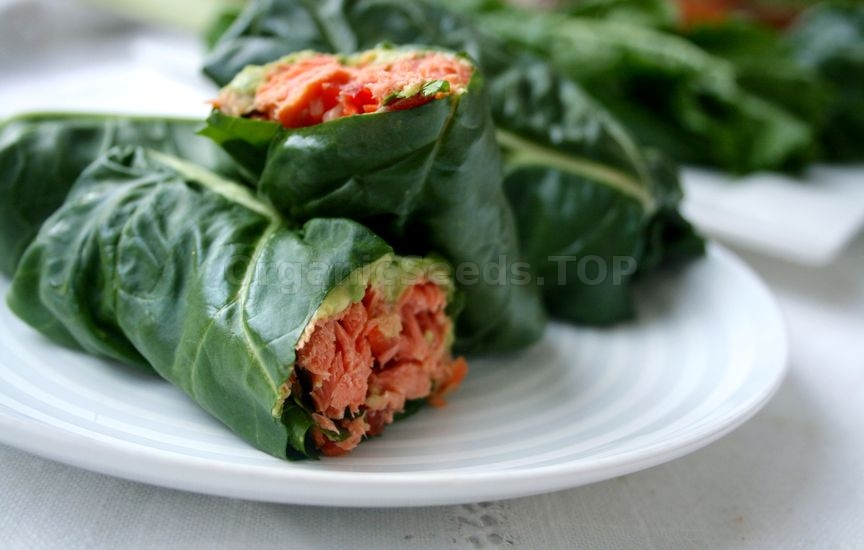 Every 100 g serving of Swiss chard provides you 10% of the recommended daily intake for iron. Daily intake of foods rich in iron such as Swiss chard enhances the production of red blood cells. Consequently, regular consumption of this vegetable is a sure way to prevent or treat anemia.
3. Promotes Bone Development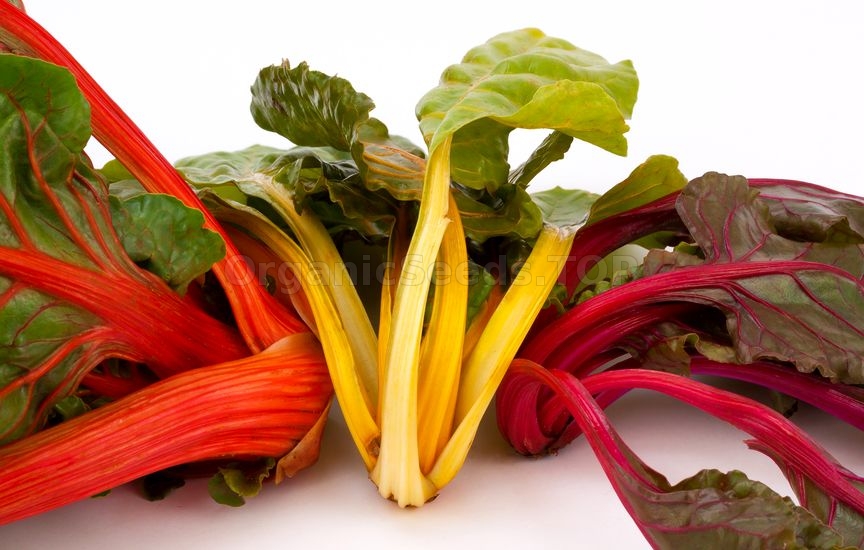 Swiss chard is an excellent source of calcium and vitamin K, both of which are key nutrients in maintaining a strong skeletal structure. Approximately 99% percent of the body’s calcium stores is amassed in the bones, where it is required to sustain mineral density, strength, and prevent fractures.
Moreover, vitamin K is essential in reducing fracture rates since it triggers osteocalcin, the chief non-collagen protein that assists in bone formation. Together, calcium and vitamin K promotes the overall development of bones. On top of all this, just a meager serving of this vegetable can already provide you with 1038mcg your recommended dietary intake for vitamin K, making Swiss chard a perfect option to get your Vitamin K. 4. Prevents Cardiovascular Disease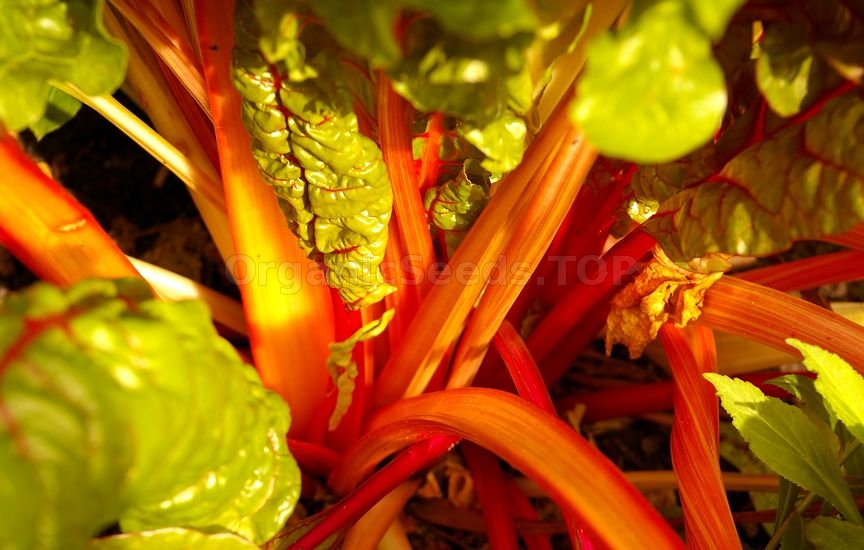 Swiss chard is an anti-hypertensive food because it contains trace minerals that are needed to promote circulation, blood vessel health, as well as heart beat regulation.
Swiss chard possesses an array of antioxidants that benefits the heart in multiple ways. It has the ability to lower levels of inflammatory factors that may aggravate high cholesterol levels, high blood pressure, and the risk of a heart attack or stroke (such as C-reactive protein). In addition, Swiss chard contains calcium, copper, iron, magnesium, and potassium. Together, these minerals assist in red blood formation, blood vessel dilation, and regulate blood pressure levels. 5. Promotes Digestion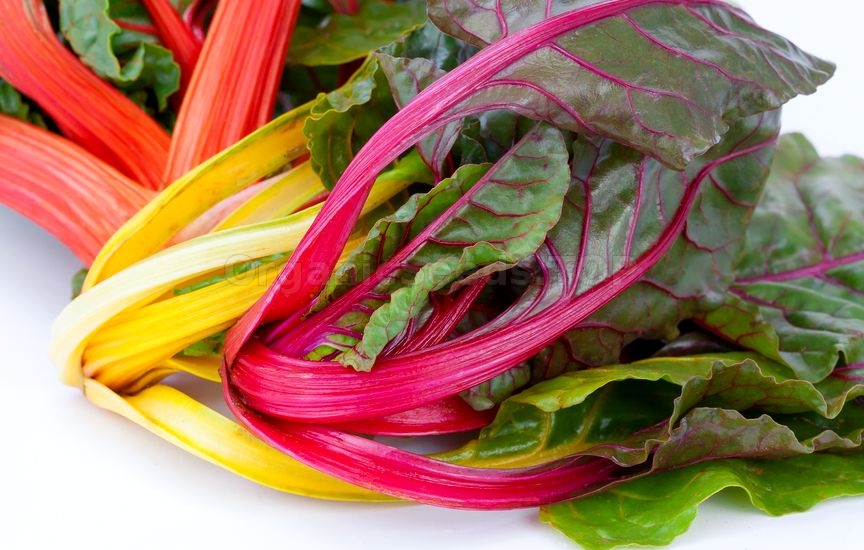 Swiss chard benefits the digestive system by reducing inflammation within the digestive tract and promoting regular bowel movements; hence, effectively eliminating toxins out of the body.
A cup of cooked Swiss chard contains 4 grams of dietary fiber, which makes up 24% of your recommended dietary allowance. Moreover, betalains, the water-soluble nitrogen containing pigments that give Swiss chard its color, encourages natural antioxidant and anti-inflammatory functions within the gut. 6. Boosts Cognitive Development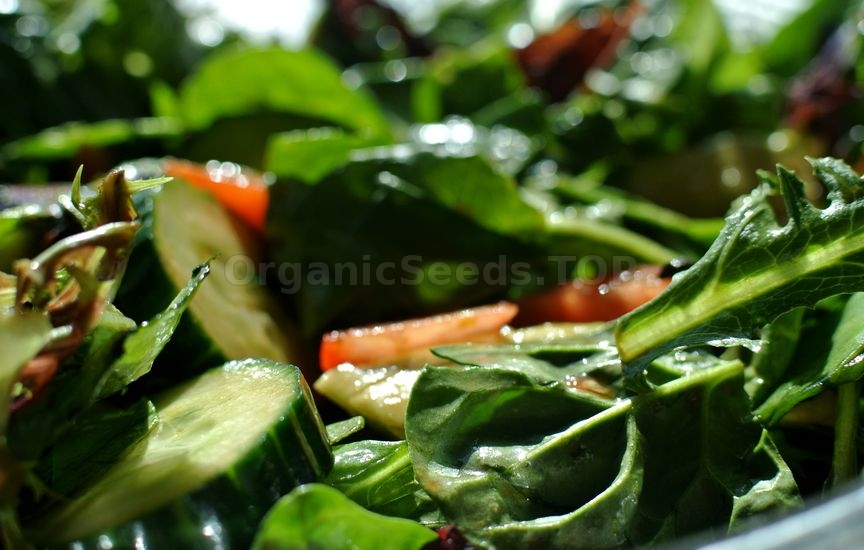 Numerous studies show that daily intake of vegetables with high betalain levels such as Swiss chard provides significant protection from oxidative stress-related disorders including neurodegenerative diseases. Swiss chard contains generous betalains and an array of antioxidants that combat free radicals and protects brain cells from DNA mutation and excessive oxidative damage; thus, reducing the risk for Alzheimer’s and Parkinson’s disease.
Moreover, Swiss chard is an excellent source of potassium and vitamin K, both of which are essential in sharpening and retention of cognitive abilities. 7. Maintains Healthy Hair, Skin, and Nails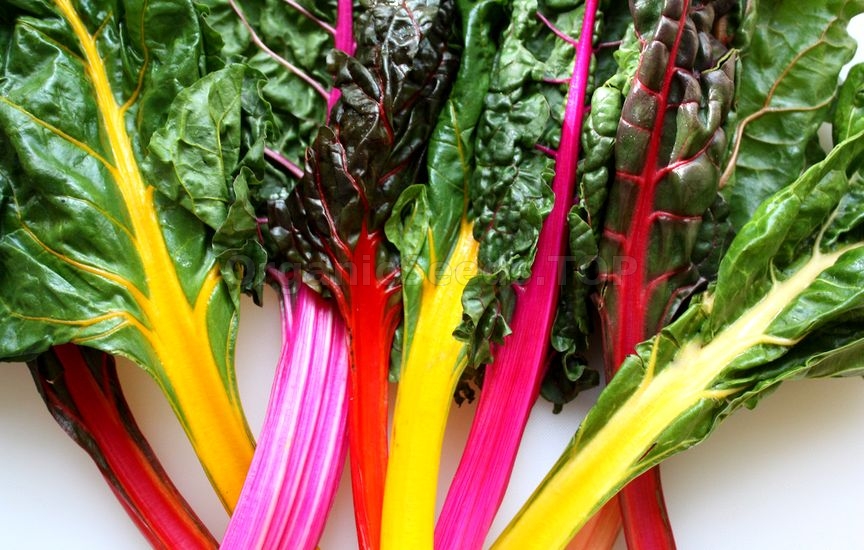 It contains biotin, an organic compound that has been directly associated with healthy hair. Biotin stimulates hair follicles, prevents hair thinning, and gives hair luster.
Likewise, biotin protects skin from fungal infections, acne, dryness, and rashes. It also strengthens nails and improved blood flow to the nail bed, where many nail disorders originate. 8. Improves Muscle Function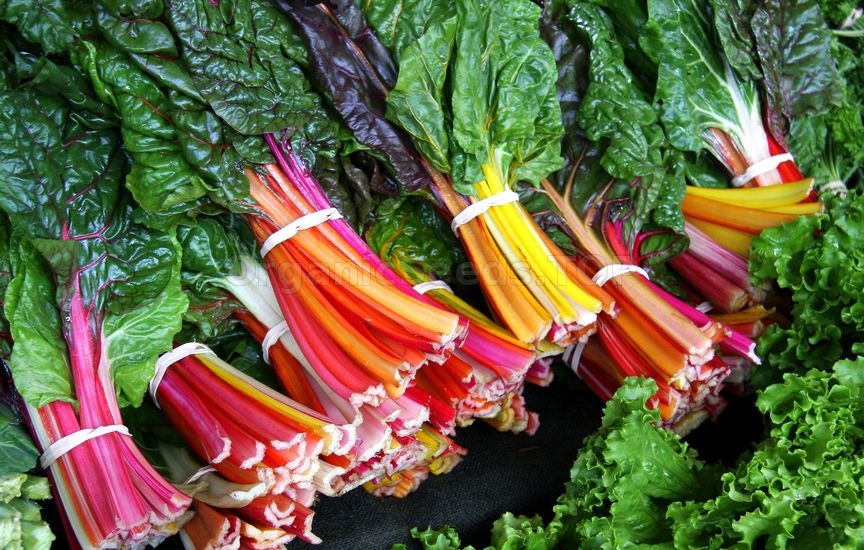 Swiss chard contains significant amounts of minerals that are essential for muscle health. One hundred grams of cooked Swiss chard contains 20% of your recommended dietary allowance of magnesium; thus, improving circulation and reducing muscle cramps.
Most importantly, adequate intake of magnesium prevents symptoms that are associated with magnesium deficiency such as depression, infertility, insomnia, and noise sensitivity among others, plus neuro-muscular dysfunction. 9. Prevents Macular Degeneration and Improves Overall Eye Health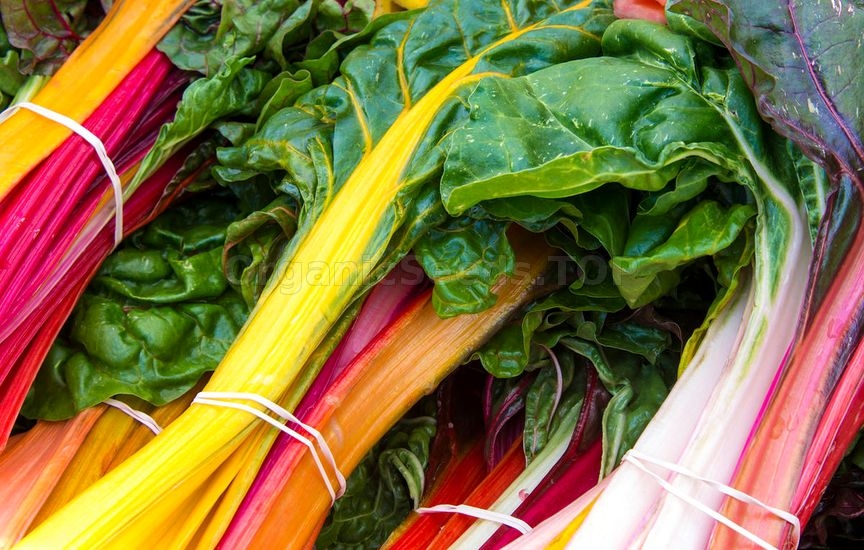 It is abundant in lutein and zeaxanthin, two carotenoids that enhance eyesight and reduce the risk of vision-related conditions. Lutein and zeaxanthin protects the retina and cornea from age-related disorders such as cataracts, glaucoma, and macular degeneration. These carotenoids absorb the damage caused by blue light that enters the eye and prevent it from causing disruptions to the retina.
Moreover, the Swiss chard’s phytonutrient betalains also protects the health of your nervous system. That includes promoting nerve signals for the communication between the eyes and the brain, and preservation of optic nerve health. 10. Helps Manage and Prevent Diabetes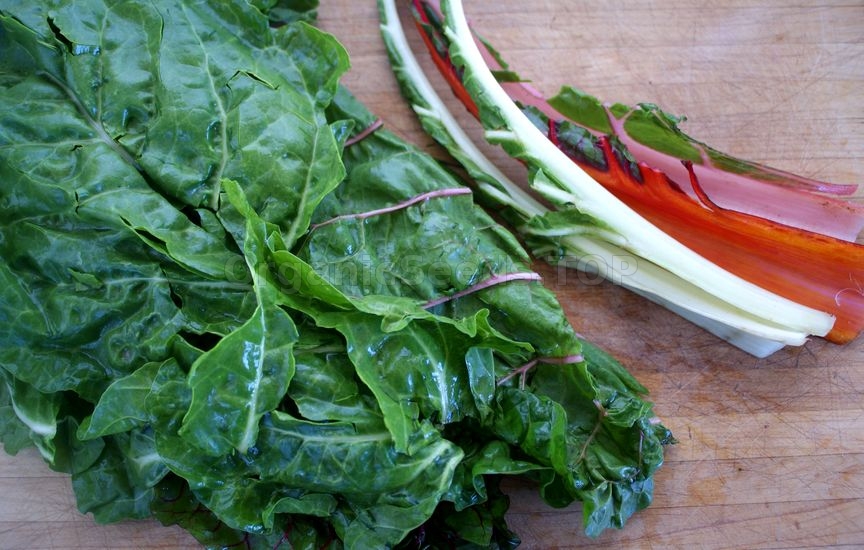 It is revered for its ability to regulate blood glucose levels in the body. It is ideal for diabetic patients, individuals with insulin resistance or metabolic syndrome, and those who are at a risk of developing diabetes.
The vegetable contains flavonoids that inhibit alpha-glucosidase activity in the intestines. This inhibition reduces the rate of glucose absorption through extended digestion time and prolonged carbohydrate digestion. Hence, it prevents sugar spikes that are very dangerous to diabetics.  In addition, Swiss chard promotes faster regeneration of pancreatic beta cells, which are responsible for producing insulin, and are frequently damaged in diabetics. Furthermore, Swiss chard contains syringic acid that is found in the leaves of the vegetable. Syringic acid is known for maintaining normal blood sugar levels. 11. Helps Prevent Cancer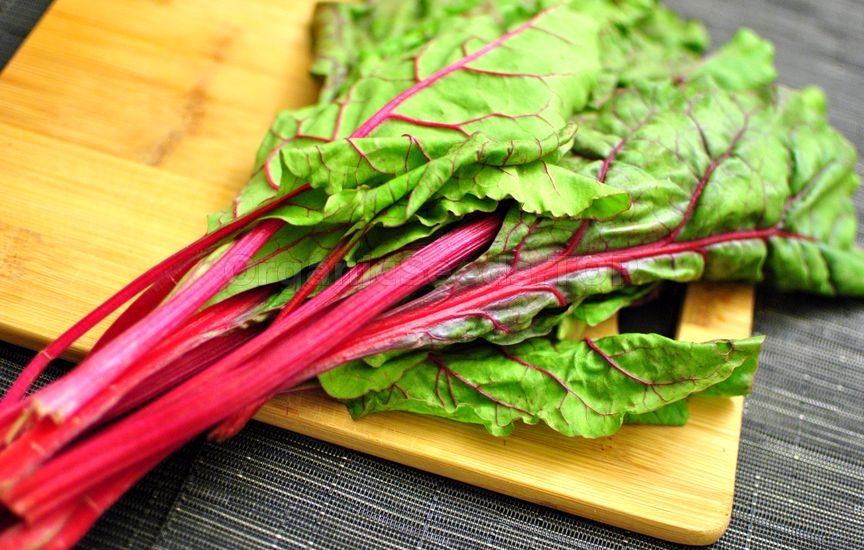 Leafy green vegetables contain a broad-spectrum of cancer fighting antioxidants; and Swiss chard is no exception to this rule. In fact, Swiss chard is one of the most antioxidant-rich vegetables on the planet. Swiss chard has a notable amount of beta-carotene, vitexin, quercetin, and betalains among others.
Recent studies show that Swiss chard extract discourages human cancer cell proliferation and stabilizes fibroblasts, which are important cells that comprise connective tissues. The antioxidants present in Swiss chard are also linked with the ability to inhibit cancer cells from breast, colon, endometrial, lung, and prostate tumors. Conclusion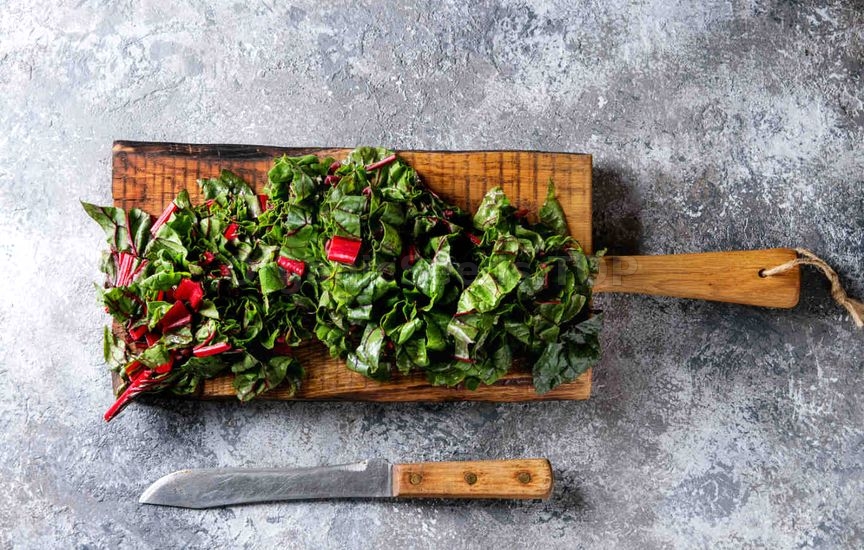 Swiss chard is cheap, has a mild flavor and is available virtually all over the world. This alone, should make it an important part of your diet, even if economics is a deciding factor in your diet. Swiss chard has on offer multiple benefits on health, which alone should make it a permanent fixture at your dining table come meal time. You may need:«Barese» - Organic Chard Seeds«Fantasy» - Organic Chard Seeds |
|
|
